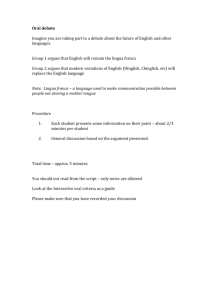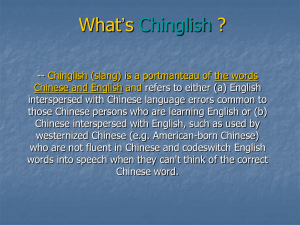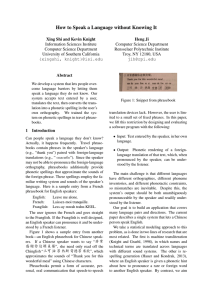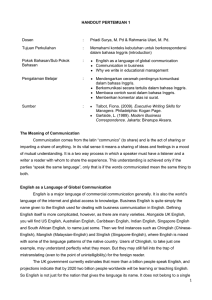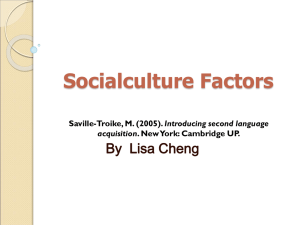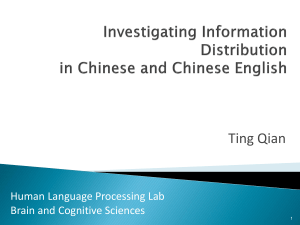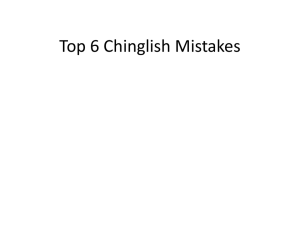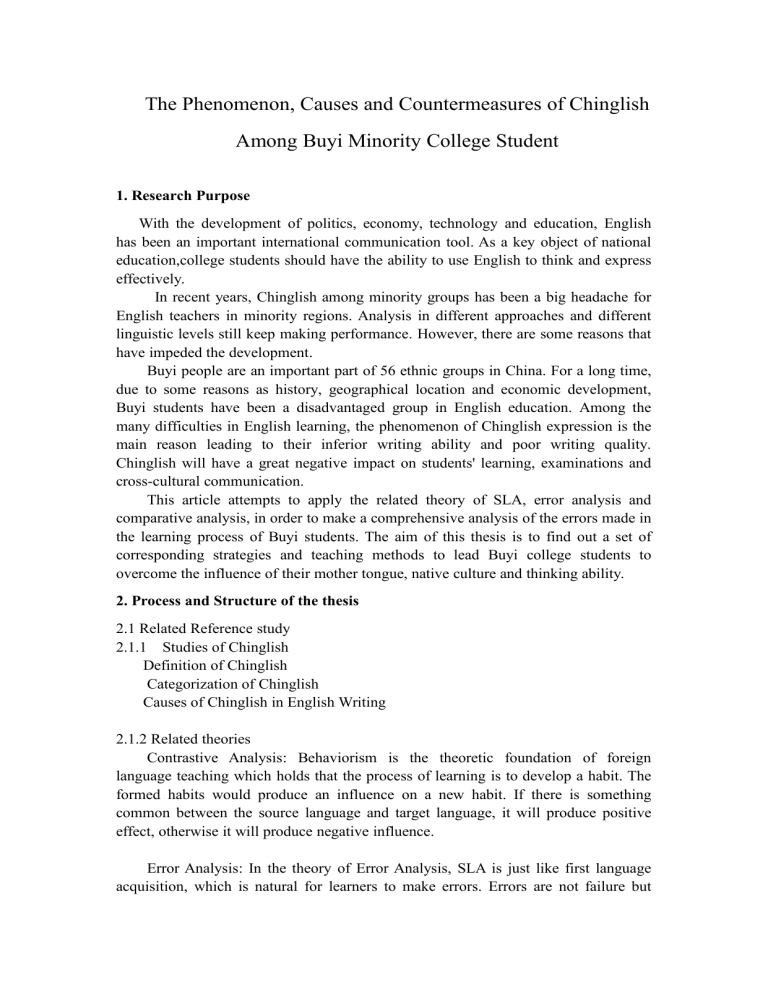
The Phenomenon, Causes and Countermeasures of Chinglish Among Buyi Minority College Student 1. Research Purpose With the development of politics, economy, technology and education, English has been an important international communication tool. As a key object of national education,college students should have the ability to use English to think and express effectively. In recent years, Chinglish among minority groups has been a big headache for English teachers in minority regions. Analysis in different approaches and different linguistic levels still keep making performance. However, there are some reasons that have impeded the development. Buyi people are an important part of 56 ethnic groups in China. For a long time, due to some reasons as history, geographical location and economic development, Buyi students have been a disadvantaged group in English education. Among the many difficulties in English learning, the phenomenon of Chinglish expression is the main reason leading to their inferior writing ability and poor writing quality. Chinglish will have a great negative impact on students' learning, examinations and cross-cultural communication. This article attempts to apply the related theory of SLA, error analysis and comparative analysis, in order to make a comprehensive analysis of the errors made in the learning process of Buyi students. The aim of this thesis is to find out a set of corresponding strategies and teaching methods to lead Buyi college students to overcome the influence of their mother tongue, native culture and thinking ability. 2. Process and Structure of the thesis 2.1 Related Reference study 2.1.1 Studies of Chinglish Definition of Chinglish Categorization of Chinglish Causes of Chinglish in English Writing 2.1.2 Related theories Contrastive Analysis: Behaviorism is the theoretic foundation of foreign language teaching which holds that the process of learning is to develop a habit. The formed habits would produce an influence on a new habit. If there is something common between the source language and target language, it will produce positive effect, otherwise it will produce negative influence. Error Analysis: In the theory of Error Analysis, SLA is just like first language acquisition, which is natural for learners to make errors. Errors are not failure but necessary for one's foreign learning. Two concepts cannot be confused here: mistakes are made randomly and errors are made by the influence of one's language transfer ability, and the latter concept is our focus in this thesis. Interlanguage: The term of Interlanguage was first produced by Selinker in 1969. It refers to a language system used by second language learners between native language and target language. It includes the characters of both native language and target language. It moves close to the target language gradually but not the real target language. 2.2 Analysis of Chinglish in College English Writing 2.2.1 Subjects’ Selection -- 100-300 Buyi students(male and female, English and None English majors) in Qiannn Normal University for Nationalities 2.2.2 Means of data collection: Pigaiwang Intelligent Essay Review System 2.2.3 Data Processing: All the writing data will be selected from their English examination on the previous semester. 2.2.4 Data Analysis and Findings (to be done in the future) -- Error Analysis from Semantic Level Context -- Lexical Level -- entence Level -- Error Analysis from Syntactic Level -- Error Analysis from Cultural Level 3. Solutions to Cope with Chinglish (to be done in the future) 3.1 Solutions to Cope with Chinglish from Semantic Leve1 3.2 Solutions to Cope with Chinglish from Syntactic Leve1 3.3 Solutions to Cope with Chinglish from Cultural Level 4. Conclusion References.

